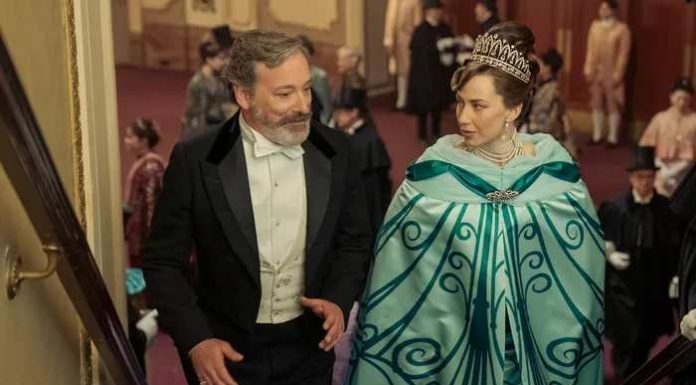The eighth episode of The Gilded Age‘s second season makes viewers feel a lot of different feelings by combining many complicated plots and subplots into one interesting story. As the last episode of this season, it does a good job, leaving viewers happy and wanting more. The episode looks at the complicated social situations in the 1880s America, using historical references along with Julian Fellowes’s artistic flair. Fellowes is the brains behind the show.
In this part, we see the end of several different stories, including the heated opera war between Bertha and Mrs. Astor and the problems of the Van Rhijn family. That episode talks about how complicated relationships are, how social expectations work, and how tradition and change are always at odds with each other. We are treated to a show that goes beyond just reenacting history as the characters move through the opera houses and social groups of the Gilded Age. As the curtains come down on this important fight, the question that keeps going through people’s minds is: Who won the Opera War? TVAcute dives into detail.
The Gilded Age Season 2 Episode 8 Recap: Who Won the Opera War?
The eighth episode of The Gilded Age’s second season ends with the question, “Who won the opera war?” The answer comes out in a series of dramatic events that change what happens to some important people.
Bertha Russell’s brave move to get the Duke of Buckingham to come to the opening night of the Met sets up a fight with Mrs. Astor. The opera war turns into a social battleground, with both women trying to get the important job of hosting the Duke. Bertha (Carrie Coon) , driven by her desire to move up in society, makes the shocking choice to use her daughter Gladys as a pawn in this high-stakes game.
The opening night at the Met is a grand show, with Bertha’s victory taking center stage over Mrs. Astor. The episode does a great job of showing how rich and fancy Gilded Age society was, highlighting how important social standing and how people saw you were.
It was a turning point when the Duke chose to go to the Met instead of the Academy. This meant that Bertha won the opera war. When things are over, the Russells are happy about their success, but Bertha’s choices still affect the lives of those close to her. The episode does a great job of showing how complicated desire, sacrifice, and the cost of social success can be.
The Duke’s eventual showing at the Met is the last proof that Mrs. Russell was right. That being said, the win comes at a big price: she has to give up her daughter to move up in society…. The episode does a great job of showing how complicated desire, sacrifice, and the cost of winning were in the Gilded Age when things were fancy but cruel. Mrs. Russell’s smart and risky moves put her at the top of New York society, which is a turning point in the ongoing story of social battles in The Gilded Age.
Other ending events that are worth talking about..
At the same time, the Van Rhijns are fighting a different kind of war: a battle to stay alive financially. When Ada’s late husband’s hidden wealth is found, it saves the family and lets them keep living their lavish lifestyle. This surprising turn of events adds a layer of irony to the story and shows how random luck was during the Gilded Age.
In the show, the relationships between people change in big ways. While Marian and Dashiell’s sudden breakup may not seem important, it marks a change from how their relationship had been acting out throughout the season. The surprise element of Larry (Harry Richardson) Russell’s sudden love interest in Marian (Louisa Jacobson) goes against the usual slow-burn expectations of stories.
Denée Benton’s‘ character Peggy’s choice to quit her job and write a book has a modern resonance because it deals with issues of personal agency and how people interact at work. She informs Mr. Fortune that she is leaving the paper. Despite her gratitude for his assistance in finding her voice, she finds it impossible to reconcile their proximity while being emotionally distant. This episode is one of the best in the Gilded Age series because it cleverly combines historical accuracy with current relevance.
In conclusion, The Gilded Age Season 2 Episode 8 is an exciting ending that not only wraps up the season’s complex plots but also sets the stage for new dynamics in the next season. Even though the opera war is over, Bertha’s brave actions and Van Rhijns’ secret about money will surely affect these characters’ futures in Gilded Age society, which is always changing.
The Gilded Age Season 2 Episode 7 Recap







